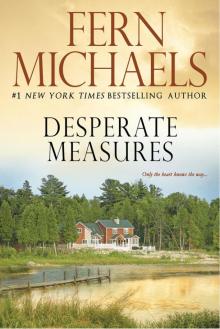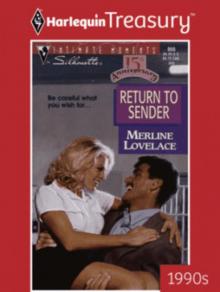- Home
- Fern Michaels
Texas Rich
Texas Rich Read online
PRAISE FOR TEXAS RICH, THE FIRST NOVEL IN FERN MICHAELS’S BESTSELLING TEXAS SERIES
“A steaming, sprawling saga. . . . As always, Fern Michaels writes a full story with bigger-than-life characters we would look forward to meeting. . . . A rags-to-riches saga that would make a colorful movie.”
—Romantic Times
“Talk about action! There is more in this epic than in : five novels. And it’s fascinating, interesting, and exciting. One of those rare books, the kind the reader doesn’t want to end. A real winner!”
—Green Bay Press-Gazette
“Fine fare for Fern Michaels’s fans!”
—The Philadelphia Inquirer
Books by Fern Michaels
The Blossom Sisters
Balancing Act
Fancy Dancer
Betrayal
Southern Comfort
To Taste the Wine
Sins of the Flesh
Sins of Omission
Return to Sender
Mr. and Miss Anonymous
Up Close and Personal
Fool Me Once
Picture Perfect
About Face
The Future Scrolls
Kentucky Sunrise
Kentucky Heat
Kentucky Rich
Plain Jane
Charming Lily
What You Wish For
The Guest List
Listen to Your Heart
Celebration
Yesterday
Finders Keepers
Annie’s Rainbow
Sara’s Song
Vegas Sunrise
Vegas Heat
Vegas Rich
Whitefire
Wish List
Dear Emily
Christmas at Timberwoods
The Godmothers Series:
Breaking News
Deadline
Late Edition
Exclusive
The Scoop
The Sisterhood Novels:
Home Free
Déjà Vu
Cross Roads
Game Over
Deadly Deals
Vanishing Act
Razor Sharp
Under the Radar
Final Justice
Collateral Damage
Fast Track
Hokus Pokus
Hide and Seek
Free Fall
Lethal Justice
Sweet Revenge
The Jury
Vendetta
Payback
Weekend Warriors
Anthologies:
A Winter Wonderland
I’ll Be Home for Christmas
Making Spirits Bright
Holiday Magic
Snow Angels
Silver Bells
Comfort and Joy
Sugar and Spice
Let it Snow
A Gift of Joy
Five Golden Rings
Deck the Halls
Jingle All the Way
Table of Contents
PRAISE FOR TEXAS RICH, THE FIRST NOVEL IN FERN MICHAELS’S BESTSELLING TEXAS SERIES
Books by Fern Michaels
Title Page
ACKNOWLEDGMENTS
PART I
CHAPTER ONE
CHAPTER TWO
CHAPTER THREE
CHAPTER FOUR
CHAPTER FIVE
CHAPTER SIX
CHAPTER SEVEN
CHAPTER EIGHT
CHAPTER NINE
CHAPTER TEN
PART II
CHAPTER ELEVEN
CHAPTER TWELVE
CHAPTER THIRTEEN
CHAPTER FOURTEEN
CHAPTER FIFTEEN
CHAPTER SIXTEEN
CHAPTER SEVENTEEN
CHAPTER EIGHTEEN
CHAPTER NINETEEN
PART THREE
CHAPTER TWENTY
CHAPTER TWENTY-ONE
CHAPTER TWENTY-TWO
CHAPTER TWENTY-THREE
CHAPTER TWENTY-FOUR
CHAPTER TWENTY-FIVE
CHAPTER TWENTY-SIX
CHAPTER TWENTY-SEVEN
CHAPTER TWENTY-EIGHT
CHAPTER TWENTY-NINE
CHAPTER THIRTY
CHAPTER THIRTY-ONE
CHAPTER THIRTY-TWO
CHAPTER THIRTY-THREE
CHAPTER THIRTY-FOUR
PART IV
CHAPTER THIRTY-FIVE
CHAPTER THIRTY-SIX
CHAPTER THIRTY-SEVEN
CHAPTER THIRTY-EIGHT
CHAPTER THIRTY-NINE
CHAPTER FORTY
CHAPTER FORTY-ONE
TEXAS HEAT
PROLOGUE
CHAPTER ONE
THE BLOSSOM SISTERS
GOTCHA!
Copyright Page
In loving memory of Alfred P. Anderson, husband and father
ACKNOWLEDGMENTS
Recently I had the opportunity to visit the tiny dot in the Pacific known as Guam. I found it to be a land of warm smiles, laughing eyes, blue skies, and what seemed like perpetual sunshine. To compare this beautiful, progressive paradise to Hawaii and Palm Beach would not be unjust. Like Riley and Otami, my heart shattered when it was time to leave.
Because of the devastation created by Typhoon Karen on the island of Guam, it was necessary to take certain liberties in my early descriptions of specific locales and buildings. All references are true and accurate to the rebuilt Guam.
I particularly want to thank Louise and the entire Crisostomo family, along with Mary James, Astrid Hertslet, and Ben Blaz for being so generous with their time and making my visit somemorable. My sincere thanks to all of you.
Fern Michaels
“Oh! I have slipped the surly bonds of earth . . . put out my hand and touched the face of God.”—JOHN G. MAGEE, JR.
PART I
CHAPTER ONE
The crisscross-patterned lace curtains, which should have been silk organdy but were rayon instead, billowed in the soft May breeze. The chitterings of birds and new green scents drifted into Billie Ames’s room. She drew in her breath, savoring the tantalizing fragrances. Spring was her favorite time of year and this year it had seemed such a long time coming. In thirty-seven days she would graduate from high school. Adulthood. Grown-up. She bent to tie her saddle shoes, brushing impatiently at her ash-blond hair, which fell over her eyes, and frowned. Multistriped shoelaces and white anklets? Some grown-up! She should be wearing nylon stockings and heels, not these remnants of girlhood. But the war had been on in Europe for some time now and since the attack on Pearl Harbor last December, Billie had wondered if sheer stockings would go the way of the passenger pigeon: extinct. Not that it mattered, because they were beyond the limits of her clothing allowance anyway. Lots of women wore leg makeup and drew seams on the backs of their legs. But only pagans and Philistines did such things, declared Billie’s mother. And Agnes Ames rarely, if ever, admitted she was wrong.
Billie’s thoughts circled back to graduation. When she flipped the tassel of her mortarboard from one side to the other it would be the beginning of her last free summer and then off to Penn State. She’d already signed up for a major in English, because she had to pick something; but the truth was she hated the whole idea. What Billie wanted, really wanted, was to go to a good design and textile school. Agnes said that wouldn’t be seemly. The best schools were in New York City and young girls just didn’t live there alone. Not nice girls, at any rate. Later, after Billie had her degree, she could fool with such notions.
But Billie suspected the real reason was that the cost of design school was prohibitive. She wished she knew more about the family finances. Were they comfortable or merely keeping their heads above water? Agnes said that was hardly the concern of a young girl. Study,
socialize with “acceptable youngsters,” and dress well. That was Agnes’s credo, and it always ended with: “Then you’ll marry a young man from an old mainline family and your future will be secured. And always remember that no man wants used merchandise. Virginity is your most prized possession. Guard it well!” It was hard not to giggle when Agnes began preaching.
Sighing, Billie buttoned the straps of her jumper, which she’d made herself. It was such a beautiful shade of lavender and it had huge pearl buttons on the shoulder straps and two smaller ones on the patch pockets. Instead of hemming the skirt, she’d fringed it. She was the only girl in school with a fringed skirt, so far. By next week there would be at least twenty others; she was certain of it. Billie Ames enjoyed being something of a style setter.
Virginity. Agnes put great store in preserving it. Temptation was something to be fought and conquered until one’s wedding night.
Billie sighed again, this time more deeply. Temptation wasn’t a problem for her. She had no steady boyfriend, didn’t want one, either. And the boys she knew were certainly not worth wasting her virginity on. They had pimply faces, sloppy clothes, and bicycles with chipped paint and chains that always slipped off when they rode double. There was nothing at all romantic about them! Besides, most of the boys had nothing except the war on their minds, hardly able to wait for graduation when they could enlist and prove what big men they were. Girls were only secondary to the German and Japanese armies.
Billie’s world was simply too narrow, she thought. She wished she had more opportunities to travel, see things, do things. Even her trips downtown had been severely limited by Agnes ever since the arrival of military personnel. She thought of all the young men in their uniforms and grinned wickedly at her reflection in the mirror. The navy uniforms were the best, especially now in the warmer weather when they’d switched to whites. The men looked so dashing and debonair, like Tyrone Power or Errol Flynn. Imagine walking into her senior prom on the arm of a tall dark navy man! That was another thing. She didn’t have a date for the prom. A dress . . . but no date. Agnes was beginning to worry, Billie could tell. But a senior prom was special, and you had to go with someone special. Several boys had asked her, but she’d declined. Even she, with all her romantic notions, didn’t really expect the white knight to come charging down Elm Street to swoop her off to the dance. . . . Yet surely something or someone better would come along. At the last minute, she could always snag Tim Kelly. Ungainly Tim, who would make chopped liver of her feet on the dance floor. Still, he was a basketball captain and would make a respectable escort. Another sigh. Being one of the prettiest girls in the graduating class, and one of the most popular, didn’t ensure romance.
A glance at the clock on her nightstand told Billie she’d have to hurry and she experienced a small skitter of excitement. She loved Saturday afternoons and the matinee at the Loews Theatre. It meant she could leave her sewing and piano lessons behind for a few hours. Saturday afternoon meant walking downtown with her two girlfriends and meeting the gang at the corner. No one paired off, exactly, but they did walk side by side down the tree-lined streets. They were friends, and after this summer they’d all go their different ways. Billie decided she wouldn’t miss them, not the way some of the kids said they would. She’d be going off to a new school, where she could pick and choose her own friends, new friends. Ones that wouldn’t have to pass Agnes’s muster. Friends that might or might not be “acceptable.”
Billie closed the lid of her tinkling music box, a Christmas gift from her father when she was four years old. She looked at it fondly for a moment. She would not take it with her when she left for college; nor would she take the photograph of her parents smiling on the last day of their honeymoon. For an instant she felt a twinge of disloyalty. Her father had died before she and Agnes moved into Grandmother’s house on Elm Street. One day he was there and the next he wasn’t. It wasn’t as though she missed having a father, not exactly, but in some ways she did think of herself as deprived. It made her different. from the other girls, whose fathers sat on Sunday afternoons reading the newspaper and took them out for a driving lesson in the family automobile. She wouldn’t want Agnes to know she’d left the music box or photograph behind. If worse came to worse, she could pack them at the bottom of a trunk in the attic and leave them there. Billie felt better immediately. She was a good child. A dutiful daughter. And she was still a virgin, which was more than some of the girls at school could say. Already there were whispers that Cissy had given her all to an army corporal.
Billie ran a brush through her thick blond hair, pinned it back with two heart-shaped barrettes, then closed the door on her pink-and-white bedroom. “Mother, I’m leaving now,” she called to Agnes from the foot of the stairs, then she waisted.
Some people could walk into a room; others could make an entrance. Agnes Ames just appeared. One minute she wasn’t there and the next she was. It always amazed Billie.
She managed to keep her voice just a notch above conversational—Agnes said shouting was unladylike—as she went through the weekly litany for Agnes’s benefit. “We may stop for a cherry phosphate after the show. If we do, I’ll be home by five. If we decide to go for hamburgers, I’ll be home by five-thirty. The boys like to see the newsreel a second time. So it may be six at the very latest. I have my purse and enough change to pay for myself and enough for a phone call. I’m wearing my best underwear and I only put cologne on my wrists, not behind my ears. I polished my shoes and buffed the white part.”
Billie smiled at her mother and stood still for her silent inspection. Agnes’s dark brown gaze snapped and clicked as it monitored her daughter. From long experience Billie recognized the invisible signal that said she had passed standards. “What are you going to do this afternoon, Mother?”
“Today is Saturday. I have to clean the two front bedrooms. Our roomers are out, so this is the best time. Miss Carpenter is working overtime at the Navy Yard today. She certainly must make a princely wage.” This might be the time to think about raising the room rent a little, Agnes thought, maybe a dollar or so a week. Or perhaps she could offer breakfast and charge three dollars more. . . . God, how she hated this penny-pinching! “Miss Addison is away for the weekend. Did she pay you for hemming her skirt, Billie?”
“Yes, Mother. And there’s another for me to do this week.”
“Good. We don’t want to be taken advantage of, do we? I still haven’t resigned myself to opening my home to total strangers. Of course, what else could I do? I’m as patriotic as the next person and, considering the housing shortage in Philadelphia and having the space, I couldn’t very well not, could I?”
“They’re both nice ladies,” Billie said, “They’re quiet and they don’t mess up the bathroom.” She hoped Agnes wasn’t having second thoughts about taking in roomers, because now there always seemed to be a little extra money.
Agnes Ames was tall and thin, stylishly so. Her expertise with the needle proved that clothing need not be padded or flounced to make a garment appear custom tailored. Today she wore a beige-and-brown street dress with a wide chocolate sash. Adorning her long aristocratic neck were her grandmother’s pearls. Severe was a word that came to mind when one thought of Agnes Ames. Just as the pearls were always around her neck, so there was the calculating expression in her eyes. She had good clear skin, thanks to Pond’s Cold Cream and Dream Puff Powder. They were the only cosmetics she allowed to touch her face, aside from lipstick. Agnes never wore rouge: that was for wantons and streetwalkers. She preferred to pinch her cheeks. She did her own hair, out of necessity and frugality, and had become expert at using Nestle’s thick green wave set and the metal clamps that guaranteed a tight crimp. Small, imitation pearl clip-on earrings completed the outward appearance of Agnes Ames.
She poked her long thin arms through the holes of a pinafore-style apron, which she wore to save her dress. “Yes, they are quiet and neat, aren’t they? However, that was not happenstance, Billie—I was quite ca
reful in choosing them and it always pays to have a clear-cut understanding from the beginning.” Switching to Billie’s plans for the afternoon, Agnes, asked, “Are all of you going to the matinee?”
Billie took her cue. “Carl, Joey, Chester, and Tim. Bernice, Barbara, Dotty, and myself. That’s all.”
Agnes rolled the names over on her tongue. Hardly old Philadelphia mainline society, but they were acceptable. No old money there, but a lot of new money, most of it profits of war. New money could be offensive, almost threatening, because it had to be earned. Old money was comforting, a state of being.
“Enjoy the movie, Billie. I’ll hold dinner. Something light. Perhaps some of that new lettuce from our Victory garden. There are still four eggs left on our rations.” Agnes’s lip curled when she mentioned the Victory garden and food rationing. Billie suspected that the careful tending of the garden out back was less an effort of patriotism than an outward sign of Agnes’s driven desire to be like everyone else, only better.
“It sounds fine, Mother. Don’t work too hard. Perhaps I should stay home and give you a hand.”
“Nonsense. You go out with your friends. I’ll be done in no time. If it weren’t for this ridiculous war, decent people would still have cleaning help. It seems anyone who’s able to give a full day’s work has gone on to greener pastures at the Navy Yard or in factories. Help is so difficult to find.”
After Billie had left, Agnes looked about the small living room. It was neat, tidy and gleaming. Agnes liked soap and water. With her daughter out of the house this might be a good time to move Billie’s things downstairs to the study. There was no sense letting an extra room go to waste, and they certainly could use the money it would bring. By Tuesday the room could be rented. She should have done it long before this. It never occurred to her that Billie might object. Billie never objected. She was such a good child. The study had a window seat where Billie could sit and read for hours. No one could ever point a finger at Agnes and say she wasn’t doing her duty for the war effort. It wasn’t her fault she didn’t have a son to give for her country. Renting out her spare rooms and having a Victory garden were her contributions.

 Safe and Sound
Safe and Sound Santa Cruise
Santa Cruise Deep Harbor
Deep Harbor Truth and Justice
Truth and Justice Far and Away
Far and Away The Christmas Stocking
The Christmas Stocking 18. Cross Roads
18. Cross Roads Texas Sunrise
Texas Sunrise Take Down (The Men of the Sisterhood)
Take Down (The Men of the Sisterhood) Sleigh Bells
Sleigh Bells A Golden Tree
A Golden Tree About Face
About Face To Taste The Wine
To Taste The Wine Texas Rich
Texas Rich 15. Vanishing Act
15. Vanishing Act To Have and to Hold
To Have and to Hold Eyes Only
Eyes Only Fearless
Fearless 5. Sweet Revenge
5. Sweet Revenge A Season to Celebrate
A Season to Celebrate Cut and Run
Cut and Run 8. Hide and Seek
8. Hide and Seek A Snowy Little Christmas
A Snowy Little Christmas Hidden
Hidden Sins of the Flesh
Sins of the Flesh 3. Vendetta
3. Vendetta Desperate Measures
Desperate Measures No Way Out
No Way Out Late Edition
Late Edition 11. Collateral Damage
11. Collateral Damage Texas Heat
Texas Heat Forget Me Not
Forget Me Not 4. The Jury
4. The Jury 16. Deadly Deals
16. Deadly Deals Plain Jane
Plain Jane Crown Jewel
Crown Jewel Sweet Vengeance
Sweet Vengeance 19. Deja Vu
19. Deja Vu Point Blank
Point Blank Truth or Dare
Truth or Dare Family Blessings (Cisco Family)
Family Blessings (Cisco Family) Classified
Classified The Blossom Sisters
The Blossom Sisters Spirited Away
Spirited Away Wishes for Christmas
Wishes for Christmas What You Wish For
What You Wish For Fancy Dancer
Fancy Dancer 14. Razor Sharp
14. Razor Sharp I'll Be Home for Christmas
I'll Be Home for Christmas Vegas Sunrise
Vegas Sunrise Trading Places
Trading Places Charming Lily
Charming Lily Cross Roads
Cross Roads Balancing Act
Balancing Act Cinders to Satin
Cinders to Satin A Family Affair
A Family Affair A Winter Wonderland
A Winter Wonderland 17. Game Over
17. Game Over Hokus Pokus (The Sisterhood: Rules of the Game, Book 2)
Hokus Pokus (The Sisterhood: Rules of the Game, Book 2) Picture Perfect
Picture Perfect Dear Emily
Dear Emily 9. Hokus Pokus
9. Hokus Pokus Cross Roads - Sisterhood book 18
Cross Roads - Sisterhood book 18 Blindsided
Blindsided Fast Track
Fast Track Hey, Good Looking
Hey, Good Looking Kentucky Heat
Kentucky Heat Yesterday
Yesterday Weekend Warriors
Weekend Warriors Coming Home for Christmas
Coming Home for Christmas Vanishing Act
Vanishing Act Gotcha!
Gotcha! Home Free
Home Free Fast Track (The Sisterhood: Rules of the Game, Book 3)
Fast Track (The Sisterhood: Rules of the Game, Book 3) Holly and Ivy
Holly and Ivy Fool Me Once
Fool Me Once The Most Wonderful Time
The Most Wonderful Time Exclusive
Exclusive Jingle All the Way
Jingle All the Way Vendetta
Vendetta Kentucky Rich
Kentucky Rich Lethal Justice
Lethal Justice The Future Scrolls
The Future Scrolls Deja Vu
Deja Vu Getaway
Getaway Mistletoe Magic
Mistletoe Magic Seasons of Her Life
Seasons of Her Life When the Snow Falls
When the Snow Falls Breaking News
Breaking News 2. Payback
2. Payback Under the Radar
Under the Radar Serendipity
Serendipity High Stakes
High Stakes Need to Know
Need to Know Captive Innocence
Captive Innocence Countdown
Countdown Return to Sender
Return to Sender Fast and Loose
Fast and Loose Sara's Song
Sara's Song Razor Sharp
Razor Sharp 6. Lethal Justice
6. Lethal Justice Hokus Pokus
Hokus Pokus 13. Under the Radar
13. Under the Radar 7. Free Fall
7. Free Fall Collateral Damage
Collateral Damage Whitefire
Whitefire Upside Down
Upside Down Southern Comfort
Southern Comfort Celebration
Celebration 1. Weekend Warriors
1. Weekend Warriors 10. Fast Track
10. Fast Track Making Spirits Bright
Making Spirits Bright Silver Bells
Silver Bells Holiday Magic
Holiday Magic Christmas At Timberwoods
Christmas At Timberwoods Captive Embraces
Captive Embraces Winter Wishes
Winter Wishes Listen To Your Heart
Listen To Your Heart Kentucky Sunrise
Kentucky Sunrise Tuesday's Child
Tuesday's Child Final Justice
Final Justice Free Fall
Free Fall No Safe Secret
No Safe Secret Deadly Deals
Deadly Deals Wish List
Wish List Pretty Woman
Pretty Woman Payback
Payback Mr. And Miss Anonymous
Mr. And Miss Anonymous The Scoop
The Scoop In Plain Sight
In Plain Sight The Nosy Neighbor
The Nosy Neighbor Final Justice: Sisterhood Series #5
Final Justice: Sisterhood Series #5 Sins of Omission
Sins of Omission The Jury
The Jury Captive Secrets
Captive Secrets Hide and Seek (The Sisterhood: Rules of the Game, Book 1)
Hide and Seek (The Sisterhood: Rules of the Game, Book 1) Crash And Burn
Crash And Burn Sweet Revenge
Sweet Revenge Secret Santa
Secret Santa 20. Home Free
20. Home Free Game Over
Game Over For All Their Lives
For All Their Lives 12. Final Justice
12. Final Justice Hideaway
Hideaway Perfect Match
Perfect Match